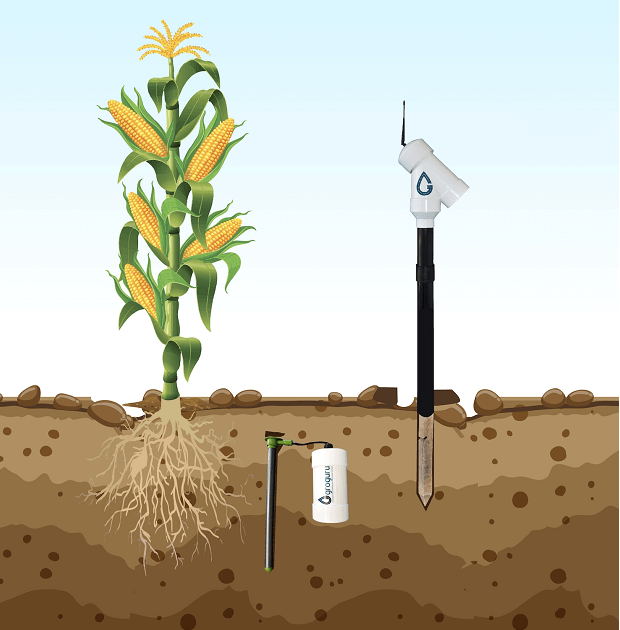Below is our recent interview with Patrick Henry GroGuru CEO:

Q: Could you provide our readers with a brief introduction to GroGuru?
Patrick Henry: GroGuru is a privately held company based in San Diego, CA that provides precision soil and irrigation monitoring systems to the commercial agriculture industry. GroGuru is focused on enabling farmers to increase crop yields while optimally use water and fertilizer. GroGuru sells an innovative hardware-enabled subscription-based solution to farmers that enables optimal irrigation. GroGuru’s 100 percent wireless underground technology enables a permanent installation of soil sensors, even in annual field crops like corn, soybeans, wheat, cotton and sorghum, that have a destructive harvest. GroGuru’s WUGS-based systems can be buried below the till depth and communicate through several feet of soil wirelessly, thus eliminating the need for the sensors to be annually installed and removed for seeding and harvesting, respectively, for these annual crops. GroGuru is a portfolio company at the EvoNexus technology incubator, the premier technology incubator in Southern California.
Q: What exactly does your platform do?
Patrick Henry: We deploy soil sensors that measure things like soil moisture, temperature and salinity at various root depth of crops. We wirelessly transmit this data to the Cloud where we add additional information to make AI-based recommendations to farmers about when and how much to irrigate their crops. Our recommendation engine accounts for the data that we get from the soil sensors, but also crop type, weather, soil type, and additional data collected via aerial photography or satellite imagery. We then partner with the farmers and irrigation control suppliers to enable an end-to-end solution for irrigation monitoring and management. Typical results are a 10 percent increase in crop yield, and a 20 percent saving on input costs like water, fertilizer and energy. We are focused on making the world the better place by allowing farmers to grow more crops in a cost-effective way, while preserving our precious resources in sustainable way.
Q: How has agriculture technology changed in the past few years? What can be attributed to the growth in AgTech investment?
Patrick Henry: Agriculture, as a sector, has been the slowest adopter of digital technologies versus nearly every other industry. However, there are potential tremendous benefits to farmers with the application of digital technologies. In terms of crops, optimal use and application of water, fertilizer, pesticides, herbicides, and proper seeds are all areas where the application of digital technologies can improve crop yield, while preserving key resources in a sustainable way. It is a win-win-win for farmers, consumers and the environment.
Q: What challenges are there for startups wanting to enter the AgTech space? What challenges have you faced over the years?
Patrick Henry: Specifically, in the AgTech space, you are dealing with farmers as your end customers. It is a highly fragmented market where you can’t build a sales force big enough and fast enough to address key market opportunities. You need to rely on partnerships, including channel partners, to grow your business. To do this right, you need domain expertise in agriculture and the specialized knowledge and relationships to build those partnerships. Typical tech companies do not have that expertise, although they have the expertise in cloud computing, software, and hardware to create solutions. This means that you need to build a diverse team, and have the willingness and patience to learn from farmers, dealers, and partners. At GroGuru, I’ve been very fortunate to have built a team that has the requisite technical, domain and business expertise to service this market. It is challenging, but also a very exciting time at GroGuru.
Q: What can we expect from GroGuru in the future?
Patrick Henry: We are at the very early innings of what I expect to be a several decades expansion of digital technologies in the agriculture industry. We are facing massive global problems where the application of digital is not only beneficial, but essential to grow enough food and save water, in a sustainable way. It is like the PC industry in the early 1990s, but with a great purpose and mission that is essential for saving our planet and saving ourselves. It is a very exciting time!
Activate Social Media:


 Recommended:
Recommended: 